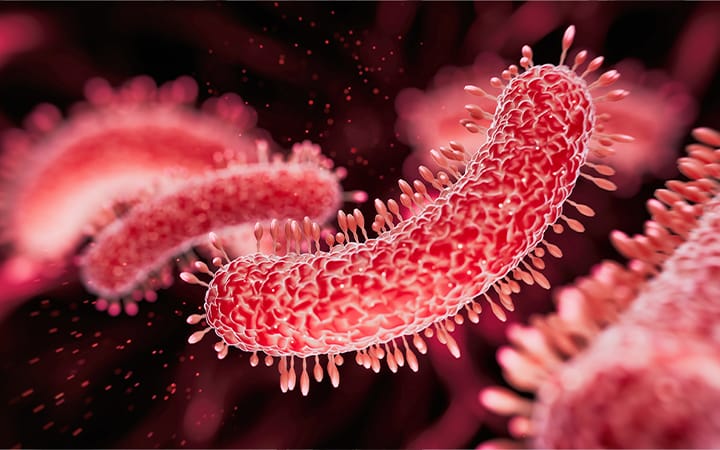What to Know About Legionnaires’ Disease
August 04, 2025

Legionnaires’ disease, a severe form of pneumonia, is in the news after an outbreak in New York City sickened hundreds of people and led to five deaths. The disease is caused by legionella bacteria, which grow in warm water and spread when water is aerosolized into a mist and inhaled.
In the recent outbreak, health officials say the source of contamination was cooling towers, which use water and fans to cool buildings.
How Legionnaires’ Disease Spreads
Most outbreaks happen in large buildings, where the bacteria can grow in large water and air conditioning systems. Other possible sources of the bacteria include hot tubs, whirlpools, hot water tanks and swimming pools. Spray from faucets and showerhead can also contain legionella bacteria.
“Legionnaires’ is associated with standing water, cooling systems and exposure to water. There is nothing different about the appearance of the water,” says University Hospitals infectious disease specialist Keith Armitage, MD, Medical Director of the University Hospitals Roe Green Center for Travel Medicine & Global Health.
People become infected by breathing in the mist. Infection also can happen by aspirating contaminated water. “Cases are uncommon and sporadic, so there is no reason to be concerned in the majority of exposures to cooling systems and other sources,” Dr. Armitage says. The disease does not spread from person to person.
How Common is Legionnaires’ Disease?
Legionnaires’ is considered rare, but it is a growing concern. It’s estimated that up to 18,000 people are hospitalized with Legionnaires’ every year in the United States. But the true number may be higher, as Legionnaires’ can be difficult to distinguish from other types of pneumonia.
The fatality rate of Legionnaires’ disease is about 10 percent, according to the Centers for Disease Control and Prevention (CDC).
Symptoms of Legionnaires’ Disease
Symptoms of Legionnaires’ disease may include:
- Cough
- Shortness of breath
- Headache
- Chills
- Muscle aches
- Chest pain
- High fever
- Nausea / vomiting
- Diarrhea
- Fatigue
- Confusion or other mental changes
The bacteria can also cause a milder, flu-like illness called Pontiac fever. Symptoms include fever, muscle aches and headaches, and usually resolve without treatment within a week.
Risks for Developing Legionnaire’s
People at increased risk for developing the disease include:
- Older adults
- People with weakened immune systems
- People with serious illnesses such as chronic lung diseases, cancer and kidney disease
- Smokers
“Legionnaires’ disease tends to cause severe illness in people with weakened immune systems, but there are occasional severe cases in people without clear risk factors,” Dr. Armitage says. “There is a strong association with smoking.”
Legionnaires’ disease can be successfully treated with antibiotics. Most people will recover, but chances of recovery are better if treated early, Dr. Armitage says. Disease progression can lead to respiratory failure, organ failure or septic shock.
“There can be very mild cases that resolve on their own, but any shortness of breath, persistent high fever or confusion should prompt people to seek medical care,” he says.
Prevention
You can lower risk of getting Legionnaires’ disease at home with a few simple practices. In public areas such as buildings and spa pools, it’s harder to know if proper steps have been taken to minimize growth of the bacteria.
The CDC recommends:
- Follow manufacturers’ instructions for cleaning and replacing water filters.
- Make sure chlorine levels are adequate in pools and hot tubs.
- Clean portable humidifiers regularly.
- Flush faucets and showerheads once a week if they aren’t being used regularly. Run hot and cold water for about 2 minutes.
- Use windshield washer fluid, not water, in the wiper fluid tank.
- Avoid water sources such as hot tubs and whirlpools in public areas if you don’t know how well they are maintained.
Related Links
The board-certified infectious disease specialists at the University Hospitals Roe Green Center for Travel Medicine & Global Health can help ensure that travelers of all ages stay healthy and safe during their journeys.


